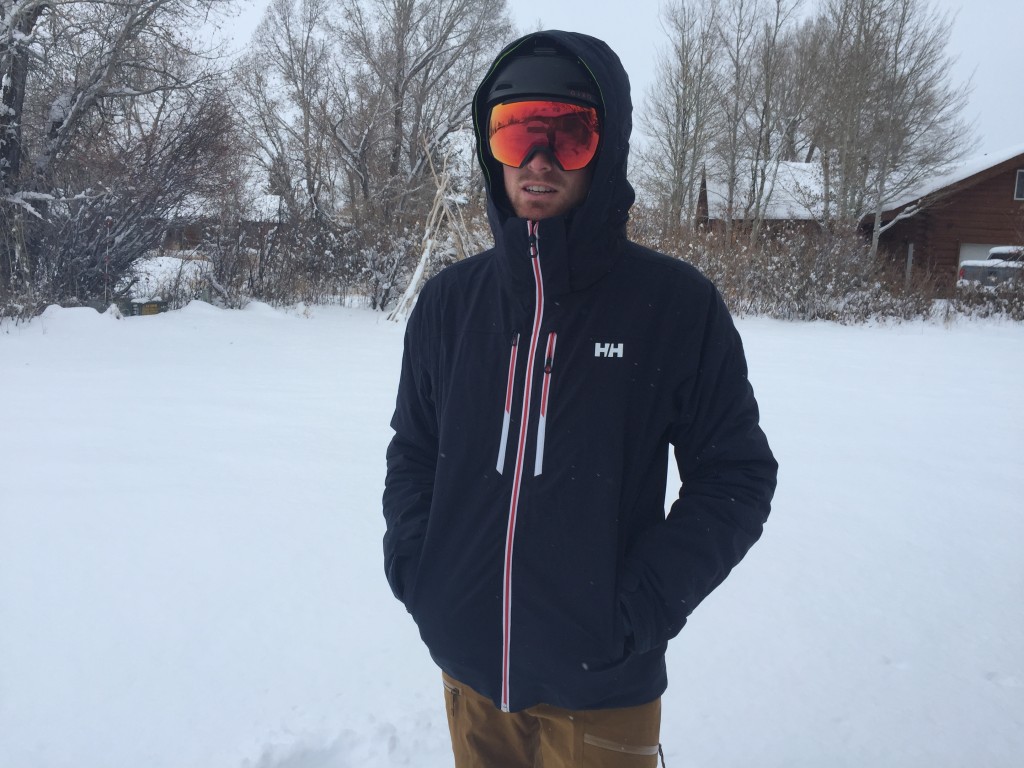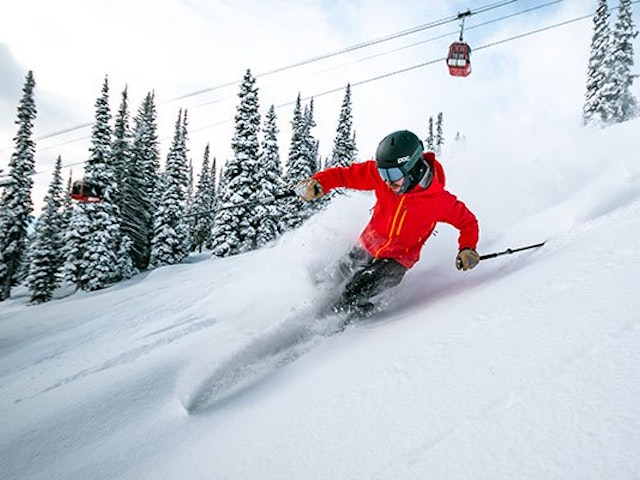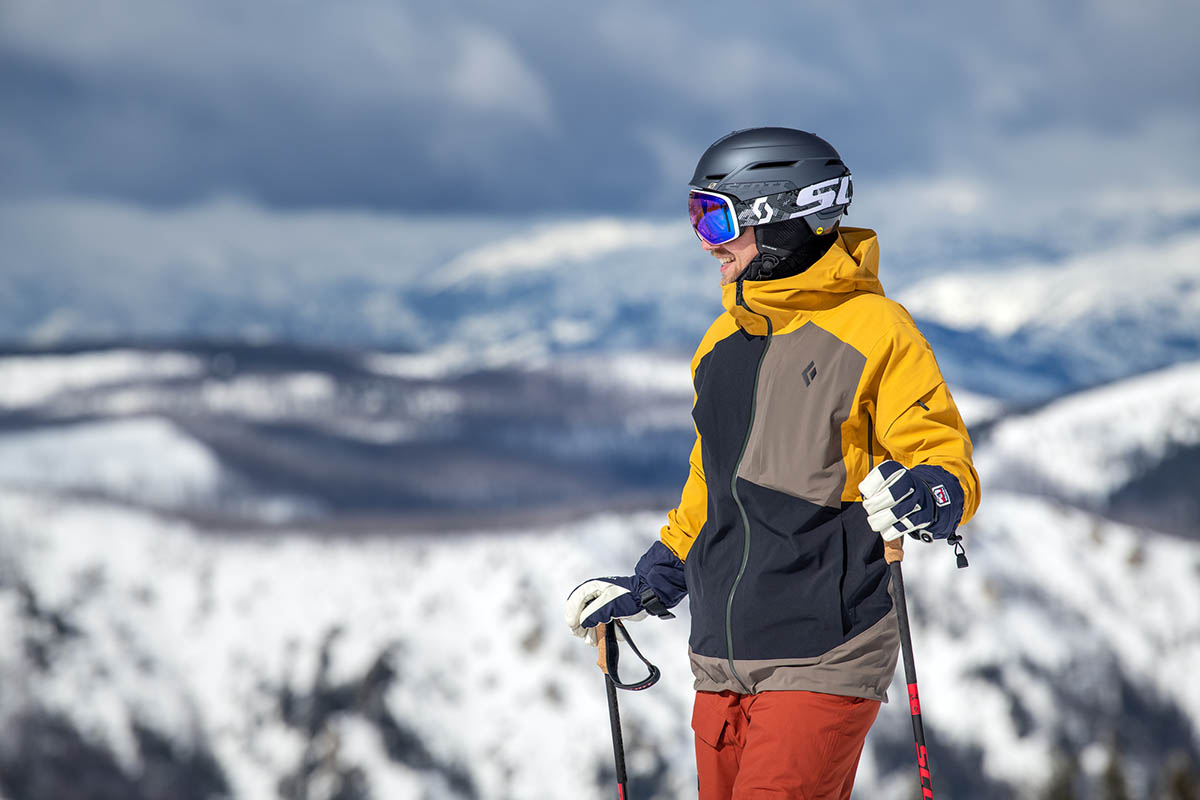
Skiing, a winter sport, is enjoyed around the globe. There are many different types of skiing, each with its own techniques and rules. It's an entertaining activity that is popular. Skiing is a great way of staying fit and a mood booster.
The most popular form of skiing is downhill. This type requires speed to ski downhill and a lot more power to make sharp turns. To protect their skin from harm, skiers wear helmets and skin-tight clothing. This sport requires strong leg muscles and reflexes.
Nordic skiing, another type of skiing, is also available. Nordic skiing is shorter than downhill and alpine, and the skis are thinner. Instead of having a fixed heel binding, Nordic skis have a detached binding. However, the equipment and technique used in both types of skiing are the same. Unlike downhill and alpine, Nordic skis are often used in backcountry areas, where the terrain is not groomed. Backcountry skiers are usually experts.

You can also ski freestyle, which is different from Nordic or downhill skiing. Freestyle skiing is a sport that involves aerials and flips. These jumps take place at a height of two to four metres. Freestyle events include super giant slalom.
Super-G is a sport which is more relaxed than alpine downhill skiing. It's a race in which athletes are focused on technique, speed, turning, and other aspects. Super-G races are held in North America, Europe and Asia. They are often one-run events. Compared to downhill skiing, they are shorter and the course is much smaller. The Super G course is typically banked. The majority of courses have 30 gates which permit skiers to dodge.
Another new type of skiing, snowboarding, has been added to Olympics. Although it is a new event, snowboarding has been a well-known sport since the 1990s. This sport is very similar to ice skating, but it has its own tricks. snowboarders can compete in various events, including ski cross, half-pipe, and freestyle.
Cross-country skiing has been around since before the advent of the Winter Games. Cross-country skiing began as a side-by, competitive event. During the Olympics, the race stretches over fifteen days. For a chance to win, each participant must complete the entire course.

Each country's organization organizes the ski events at the winter Olympics. The grading scheme will vary depending upon where you live. Pro racers typically average 35 miles per day. Each run is rated according to its relative difficulty. For each run, the winner is determined by finishing first or second. Relay races of various types are also possible. One racer, known as the team sprinter, must complete the course before the rest of the team.
Alpine skiing can be done in many different disciplines. Downhill racing is the fastest, but slalom, super-g, and freestyle are also very competitive.
FAQ
How much luggage should I take with me?
The length of the trip will affect how much luggage that you can take. If you are flying, your hand luggage is limited to less than 20kg. For a bus or train ride, however, you will require more space.
At the airport, you will receive a form that you need to complete with your details. This will include information such as the weight of your bags and whether you require assistance when checking them in.
Before you leave for work, make sure to check it. If you don't, then you could find yourself waiting around for hours while everyone else checks their luggage.
It's best to travel light, as you never know when something might happen. It is possible to lose your bag and not have something to wear.
Are you concerned about what you might lose when you travel?
Yes, I often forget stuff. This happens especially when I'm going on a short trip. But luckily, I always have everything with me, so I never run out of anything.
For example, my passport is always with me. When I buy tickets, I always ensure that I have enough cash.
My phone charger is always with me. To store any other items, I keep them in a small bag.
What documents should be kept handy while on the road?
You can always access important documents while you are on the road by keeping copies at home. It is a good idea to have a spare copy of your passport, driver’s permit, and any other official identification cards. You might also need to keep information about your credit cards in case you use an ATM machine.
It is a good idea if you have a photocopy your passport so that it can be used in the event of a need.
Don't forget to attach copies of your itinerary or reservations. These will help to keep track of where you are going and what sights you're planning to see.
As well as this, you should keep a copy of your flight ticket and hotel reservation details. This way, you'll be able to contact someone back home if you get into trouble.
Finally, it's always a good idea not to leave anything valuable unattended. Your valuables will be safe if you keep them in a money belt, or inside your luggage.
To avoid costly items being lost, make sure you check your luggage before you leave.
Remember that it is always safer to be simple than to plan everything.
So just relax and enjoy your journey!
How can I prepare myself for vacation?
To maintain a healthy lifestyle on vacation, you must eat well and exercise regularly.
Also, make sure you get plenty of sleep before you go.
You should ensure you have all necessary travel documents and medication ready for when you go.
You should also ensure that you have enough medicine to last you through your trip if you plan to take any medication.
Also, remember to bring extra clothes in case of illness or injury.
Which countries are known for their best food?
Each country has its own cuisine. It's difficult to determine which countries offer the best food.
However, we can tell which countries have the best food!
According to TripAdvisor users:
-
Italy – For its outstanding food, TripAdvisor users voted Italy number one.
-
France - France was ranked second because of its rich culture and cuisine.
-
Spain - Spain came in third because of its stunning beaches and amazing weather.
You should not forget these things when you travel.
When you travel, you'll find yourself in situations with little time to make decisions. It's okay to be spontaneous.
You could be stuck there for hours, days and even weeks. If you've planned ahead, you'll have food, water, shelter, and a place to sleep. But, if not, you might have the need to improvise.
In these cases you will need to rely on your best skills. It means you have to be able to quickly make decisions based upon your experience and instinct.
Sometimes you just can't make a choice. For example, you could be stranded in an area without cell phone service, running out of gas, or having been robbed. In those situations, you'll have to adapt quickly to whatever situation presents itself.
The key to success is to stay calm, remain focused and act decisively. Don't panic. Instead, be calm and focus on what you can do.
If you find yourself lost in the woods you can choose which way to go. If you are hungry, you can eat mushrooms or berries. Rainwater or melting snow are good options if you're feeling thirsty.
If you are tired, you can take a break. You can layer up if you are cold. If you get wet, you can put on clothes. You'll feel happier if you remain positive, no matter what your decision.
Statistics
- Alcoholic beverages with 24% alcohol or less are not subject to limitations in checked bags. (tsa.gov)
- According to Maori legends, this park holds 14 fjords that were all carved by a giant stonemason with an adze. (busytourist.com)
- That's an 18% jump from 2019, the previous record year. (travelandleisure.com)
- Pack sweaters, jackets, and underwear in reusable compression bags creating up to 75% more space in your luggage. (wikihow.com)
- Between the ages of 11 and 13, kids, or tweens, will likely want some autonomy but also need boundaries. (travelandleisure.com)
External Links
How To
What are the best travel tips for beginners?
Although traveling can be an exciting experience, there are many things you need to avoid to ensure a safe trip.
Here are some simple tips to help you plan your next holiday.
-
It is best to book early. The lower the price, the earlier you book. By booking in advance, you can save money on hotels and flights.
-
Stay-at-budget accommodations. Hotels at a lower price offer more value. They're usually located near public transportation and shopping centers.
-
Don't overpack. Keep it light. Keep room for souvenirs. Wear clothes that fit well, and don't wrinkle easily.
-
Use common sense. Don't wander around at night if you are traveling solo. Avoid dark neighborhoods or areas that are prone to crime.
-
Prevent theft. Keep valuables locked away from sight. Don't leave anything valuable behind when you go swimming.
-
Pay attention to cash. Tourists in foreign countries are often the targets of thieves. You can keep your money hidden by using ATMs within banks and guarded facilities.
-
Be familiar with your surroundings. You should know how to use public transport before you book a hotel. Find out about tourist attractions, restaurants, and other sights.
-
Be sure to learn about safety. Before you travel to another country, be familiar with the customs, laws, and culture.
-
Have fun. Enjoy yourself, no matter what happens. It's worth it.